Bulletproof Acrylic Glass
One of the most popular bullet-resistant glass products in the TSS catalog.
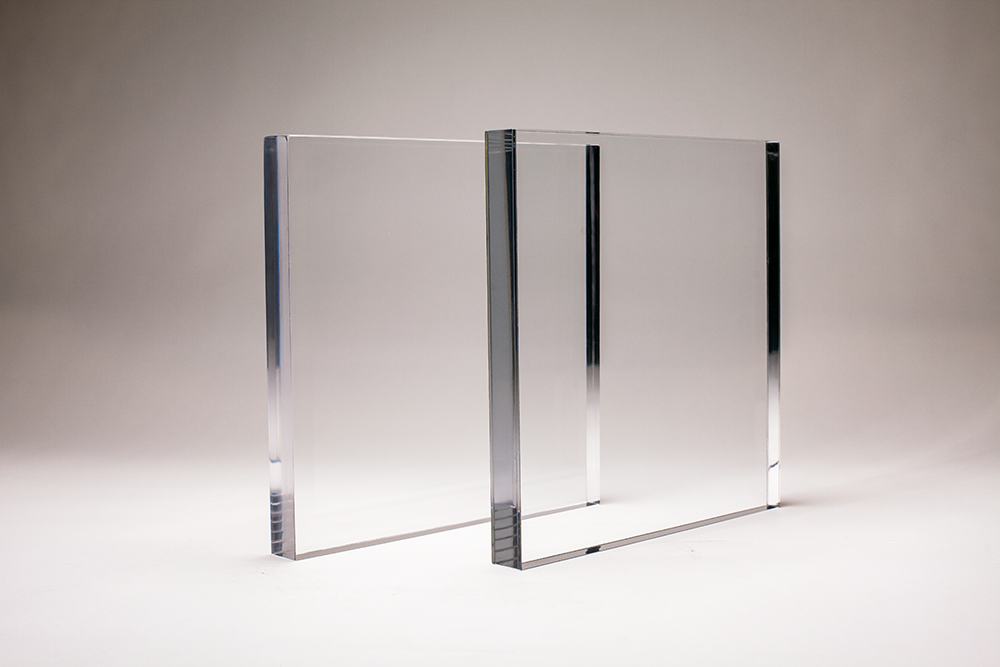
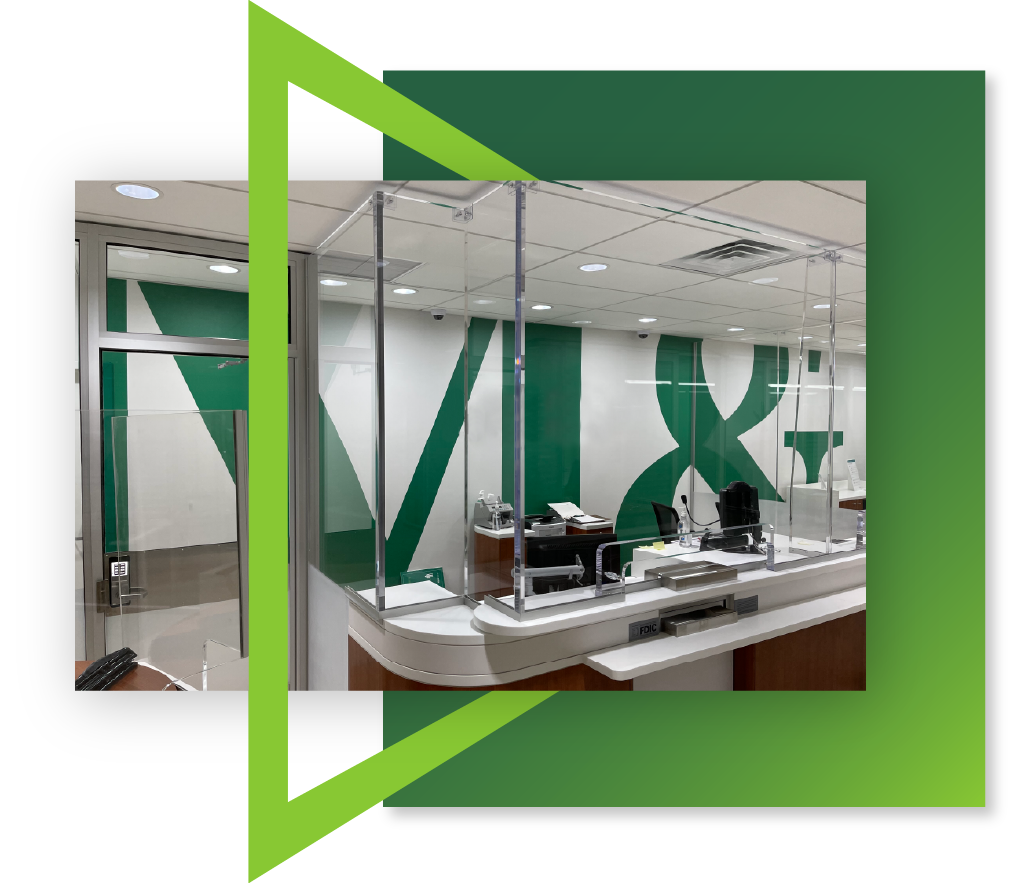
Protect Your Space With Acrylic Bulletproof Glass
Bullet-resistant acrylic, also referred to as bulletproof plexiglass, consists of a single piece of acrylic that’s 1¼” to 1⅜” thick, depending on the level of protection required. Acrylic bulletproof glass is available in UL 752 Levels 1 and 2. Bulletproof acrylic glass is incredibly strong, but can still be cut, drilled, routed, and made into your desired shape to seamlessly integrate with your facility aesthetics.
Our Bulletproof Acrylic Products
| Product | Dimensions | UL Level | Coating |
| Bulletproof Acrylic Glass | 1-1/4" | Coated | |
| Bulletproof Acrylic Glass | 1-1/4" | Uncoated | |
| Bulletproof Acrylic Glass | 1-3/8" | Coated | |
| Bulletproof Acrylic Glass | 1-3/8" | Uncoated |
Visit our Product Specifications Page to view and download Data Sheets, 3-Part Specs, and more.
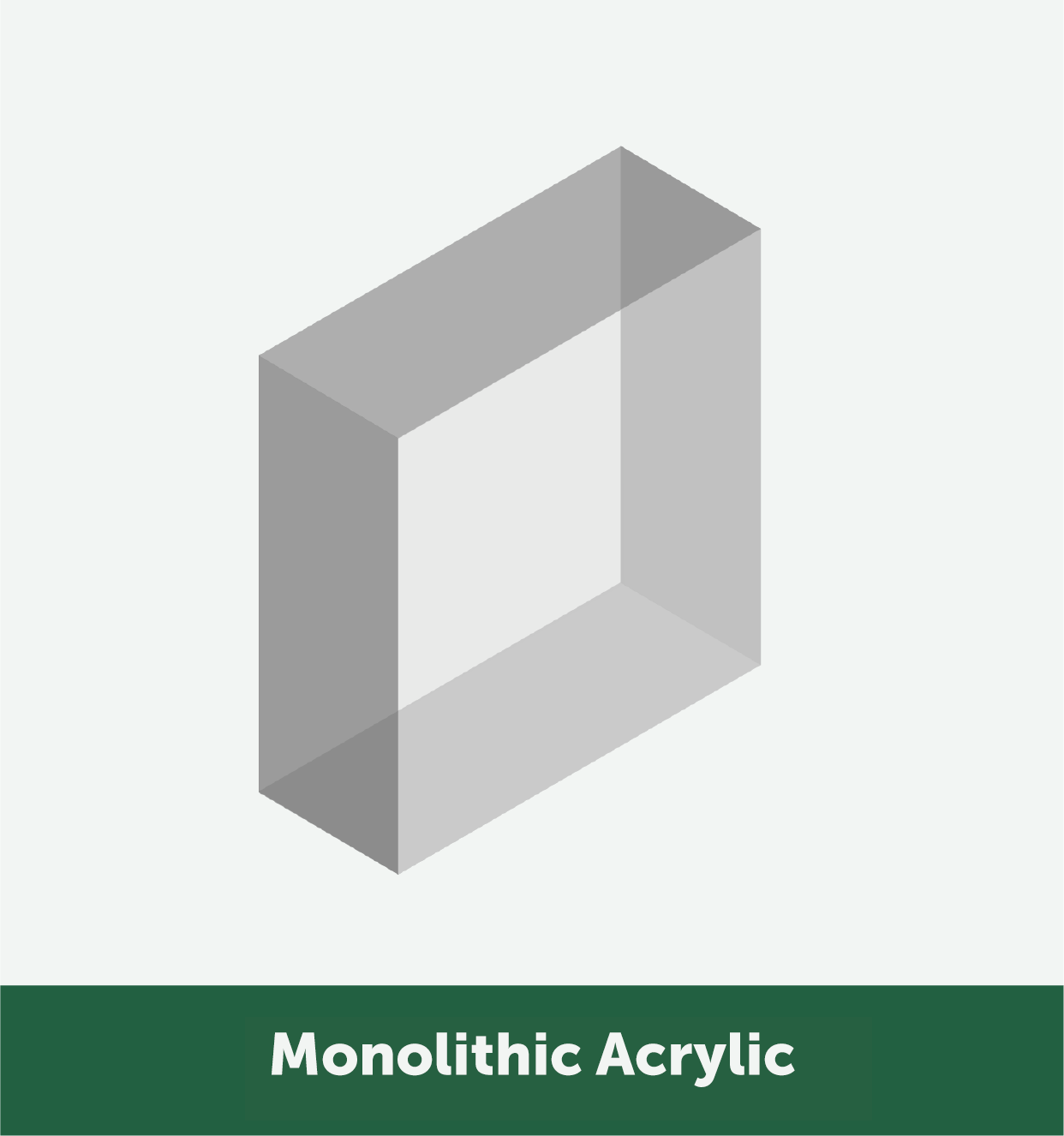
If you’d like to learn more about each product’s advantages, please reach out! One of our ballistic barrier experts is ready to learn about your project and discuss how acrylic bullet resistant glass can meet your needs.
Is Plexiglass Bullet-Resistant?
How Does Acrylic Bullet-Resistant Glass Compare to Other Options?
Bulletproof acrylic glass is a very popular bullet-resistant glazing for a reason! It’s affordable, protects against shots from some of the most commonly-owned handguns, and has a high level of optical clarity.
Glass Type |
UL Level |
Application |
|
Acrylic |
1-2 |
Interior |
|
Polycarbonate |
1-3 |
Interior |
|
Insulated Glass |
1, 3 |
Exterior |
|
Glass-Clad Polycarbonate |
1-8 |
Interior and Exterior |
Acrylic bulletproof glass is ideal for creating teller lines, reception windows, and other interior bulletproof windows and barriers. However, acrylic materials can be damaged by traditional cleaning products. Adding a protective coating is one way to reduce susceptibility to damage like crazing or hazing; using a non-abrasive cleaning agent is another option. Other types of bulletproof glass with more durable exterior surfaces, such as glass-clad polycarbonate, are not susceptible to this type of surface damage.
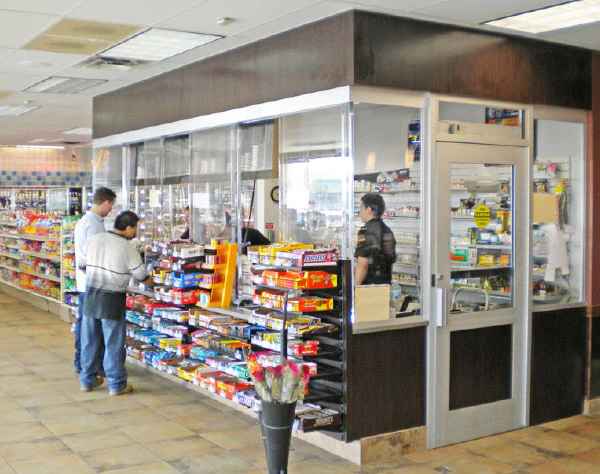
Choosing the Right Bullet-Resistant Acrylic Glass
Did you know that most workplace gun violence involves a handgun? This makes acrylic ballistic glass an ideal material for protecting your team and your workplace from handgun fire. In fact, many businesses with this level of threat find that ballistic barriers in the Level 1-3 range are appropriate solutions for their security systems. And overall, acrylic sheets are by far the most popular interior bulletproof glass materials for commercial buildings.
Our bulletproof acrylic glazing is available in UL Levels 1 and 2. An optional abrasion-resistant coating is available for both levels; this coating consists of a crosslinked polysilicate resin, a unique treatment that provides an outstanding combination of properties including abrasion resistance, solvent resistance, and weatherability. This includes an increased resistance to the effects of ultraviolet light.
Ballistic Glazing Solutions Guide
If you’re not familiar with bullet-resistant products, determining your level of threat can be tricky. Our Ballistic Glazing Solutions Guide outlines everything you need to know about bulletproof glazing — from comparing plastic sheeting options to understanding when a polycarbonate layer is recommended.
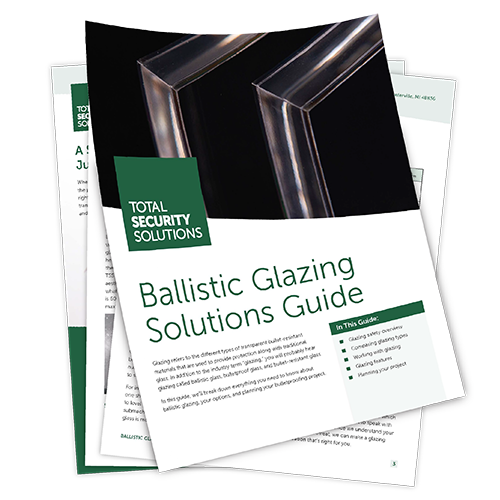
Bullet-Resistant Plexiglass Can Be Made Into Doors, Windows, Passers, and More
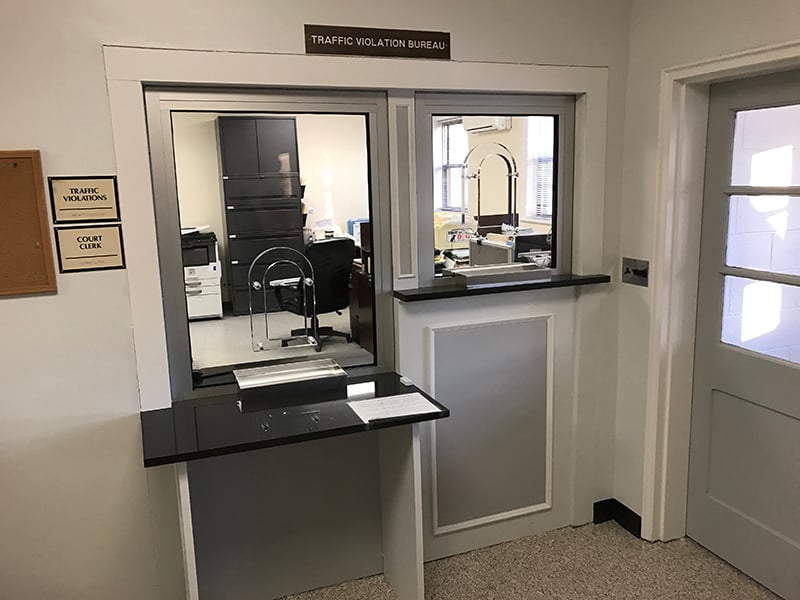
Frequently Asked Questions About Bulletproof Acrylic Glass
What is the difference between bulletproof acrylic and polycarbonate?
Bullet-resistant acrylic and polycarbonate are both clear plastics used in security glazing, but they serve different purposes. Acrylic is rigid, crystal-clear, and often used in indoor environments for UL 752 Levels 1 and 2 protection, capable of stopping up to three shots from common handguns like a 9mm or .357 Magnum. It’s cost-effective, lightweight, and easy to fabricate in the field.
Polycarbonate, on the other hand, is more flexible and impact-resistant. It’s better suited for exterior applications or locations that require forced-entry resistance. While both materials offer ballistic protection, polycarbonate (especially in laminated or glass-clad configurations) can achieve higher UL protection levels and withstand more aggressive attacks, including repeated blunt force or rifle fire.
Can bulletproof acrylic stop a rifle?
No, bullet-resistant acrylic is not designed to stop rifle rounds. It is typically rated for UL 752 Level 1 or 2, meaning it can stop up to three shots from common handguns, but not high-velocity rifle fire.
For rifle-level protection (UL 752 Levels 4 and above), a stronger material like glass-clad polycarbonate is required. TSS recommends this bullet-resistant material for environments with elevated threats, such as government buildings or high-risk facilities.
What are the security advantages of acrylic glass?
Acrylic bullet-resistant glass offers a range of benefits, especially for commercial environments. It’s lighter than traditional glass, provides excellent optical clarity, and is one of the most cost-effective ballistic materials available. It’s also more resistant to impact than annealed or tempered glass and can be cut and modified in the field for quick customizations.
Security-wise, acrylic is ideal for stopping handgun threats—the most common weapon used in workplace violence and robberies. It’s common in financial institutions, retail counters, reception areas, and educational facilities.
Can acrylic ballistic glass be used in vehicles?
Acrylic ballistic glass has been used in some vehicle applications, but it is not typically rated or engineered for automotive use under real-world conditions. Factors like vibration, extreme temperature changes, and installation challenges make polycarbonate or specialized vehicle-rated laminates more suitable for that environment.
At TSS, our focus is on architectural and commercial applications. We specialize in custom-engineered ballistic acrylic systems for buildings—like banks, schools, healthcare facilities, retail stores, and government offices—where clear, strong, and effective protection is needed to stop threats.
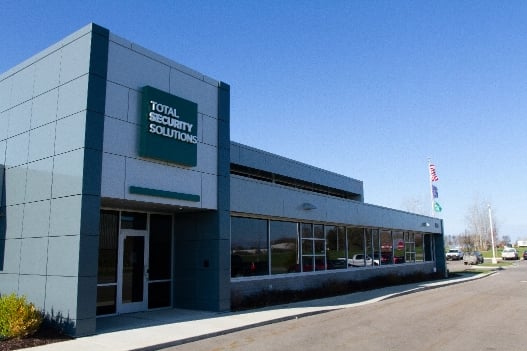
TSS Is Ready to Help You Harden Your Physical Security With Bulletproof Acrylic Glass
For decades, TSS has provided all types of businesses, organizations, and companies with the bulletproof glass they need to protect themselves and their customers. Every solution is thoughtfully produced through a proven manufacturing process to ensure outstanding performance and resistance to complete penetration. If you’d like to get started with acrylic bulletproof glass or any of our other products, please don’t hesitate to contact us or request a quote.